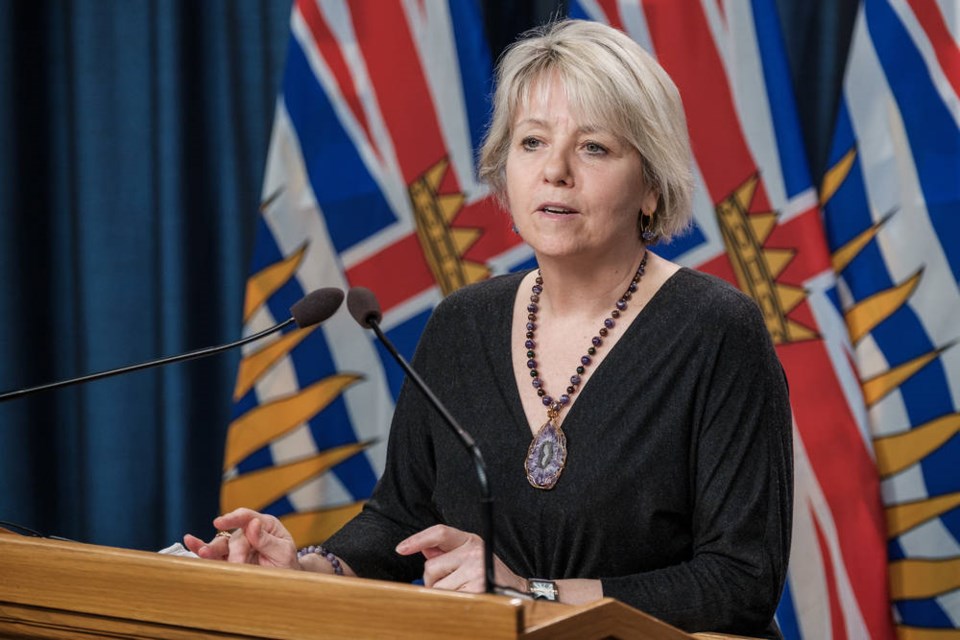Dentists, paramedics, midwives and other health professionals will be trained to administer vaccines as part of the province’s immunization strategy, says B.C.’s top doctor.
“We are very excited to be able to have the workforce that we are going to need over the next six months to ensure that we can get vaccine into as many people as wanted in this province as efficiently as possible,” said provincial health officer Dr. Bonnie Henry, who has issued an order to allow these professions to administer vaccines.
Details of how the age-based plan will to roll out in 172 sites across the province will be unveiled Monday, particularly as it relates to those age 80 and older.
The 80-plus group will be vaccinated in a mix of mass clinics and targeted vaccinations, said Henry, and they will be contacted over the next 14 days: “So please be patient. We have not forgotten you. These plans are in place, and we will be reaching out to you in the coming days and weeks.”
Mass clinics for the general population are scheduled to start on April 6 beginning with the 75-79 age group.
B.C. Health Minister Adrian Dix said 287,950 doses of vaccine have just arrived in B.C.
The mass clinics will take place in large venues such as schools and arenas. “This is going to be … at a scale that we’ve not done in many many years, and it will be prolonged,” Henry said.
Much work has been going on in the background to get the clinics up and running, she said.
That includes creation of a system that enables public health officials to identify what lot of which vaccine goes into a person’s arm as a first dose, a central registry that allows people to sign up and book appointments, and one that records and retains follow-up information for health care providers.
Clinic sites are being identified and will be released shortly, said Dix. The immunization campaign will involve a workforce tens of thousands of people, he said.
In the meantime, public health officials have been attending to outbreaks and vaccinating priority populations, including long-term care residents, staff and essential visitors, Henry said. Across the province there are outbreaks in 12 long-term care and assisted living homes, which is down from 49 such outbreaks in mid January.
Dix said 92 per cent of residents in long-term care have received first doses of vaccine, and 39 per cent have received second doses; 94 per cent of staff have had their first dose and 52 per cent the second.
There were no deaths in long-term care homes over a 24-hour period from Monday to Tuesday which Henry attributed to the immunizations.
There will be hiccups and bumps, Henry said, “but we are working hard to make sure that we can make it as seamless as possible for everybody.”
She said everybody over age 18 who is eligible for vaccines will have access, and in the event someone misses their shot, their priority placement will be maintained. “Nobody will be left behind.”
>See PANDEMIC, A2
The province didn’t fully explain the immunization notification system but said using Medical Services Plan lists and other sources, information will go out “in the coming weeks” in a variety of ways, including postcards, emails, phone calls, through specialty clinics, independent living homes, homecare services and family physician offices.
Henry suggested people might want to make sure family members and friends — especially those who might be struggling — are aware of the clinics and how to register, once that information becomes available.
A total of 559 new cases of COVID-19 were reported by B.C. health officials on Tuesday. Thirty-nine of the new cases were in Island Health. Fraser Health, which has been hardest hit in the province, had 278.
There are now 4,677 active cases of COVID-19 in B.C. Of those, 238 are in hospital, including 69 in intensive or critical care.
One death was reported in the province, in the Vancouver Coastal health region, for a total of 1,336 since the pandemic began.
In B.C., 224,354 doses of COVID-19 vaccine have been administered, 58,896 of which are second doses. There have been 292 adverse events — including 19 cases of anaphylaxis — as a result of the vaccinations. The rate of adverse events is about 10 in 100,000.



